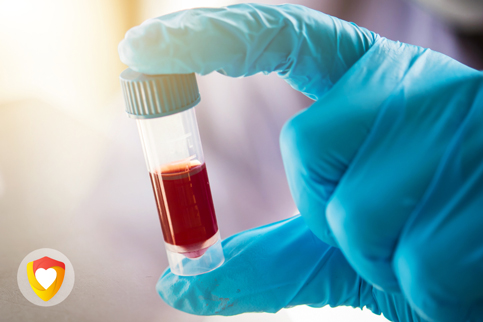Am I immune to the novel coronavirus? Having cared for COVID-19 patients in a Seattle emergency department (ED) throughout the pandemic, I often wonder. And with a protracted battle against the virus still stretching out before us, I’ll admit that a “yes” would greatly ease my mind.
Many of my colleagues express the same longing for immunity. We know that as healthcare providers, we’re at increased risk for contracting COVID-19. Perhaps we’re among the lucky ones who experienced mild or asymptomatic infection but were just sick enough to mount an antibody response.
For essential workers who can’t stay home, being immune would lift a huge emotional weight from our shoulders. We could go to work without fear. And afterward, we could come home to our families and hug them without worrying about infecting them.
I have great hope that at some point, antibody testing will play a valuable role in disease surveillance, vaccine development, and protecting essential workers. However, it’s important to understand that we’re not quite there yet.
In this post, I’ll share some thoughts on the present limitations of antibody testing, plus what the future might hold.
What can we learn from antibody testing?
Antibody tests are designed to detect the presence of COVID-19-specific antibodies in the blood. When the novel coronavirus infects the body, the immune system manufactures neutralizing antibodies, which can block the virus from entering cells. Presumably, people with sufficient levels of neutralizing antibodies are immune to reinfection.
Many manufacturers are currently marketing COVID-19 antibody test kits for diagnostic purposes. In light of test shortages, employers, health systems, and government bodies have been quick to buy. However, antibody testing could provide a falsely negative result for COVID-19 infection—especially in the early stages when the virus is most contagious, as the immune system hasn’t yet produced antibodies. What’s more, the exact timing and intensity of antibody development varies from person to person. For this reason, antibody testing should be used for epidemiological and research purposes, not as a diagnostic tool.
No test is better than a bad test
Without a doubt, the ability to accurately test for COVID-19 immunity would be a game changer. Employers could safely bring immune individuals back to work. Indeed, entire nations have floated the idea of issuing immunity passports.
Unfortunately, there are two glaring problems with this approach, at least for the moment. First is the question of test accuracy. About 120 tests for a variety of COVID-19-related antibodies have already hit the market. Most are pass-fail rapid tests that can be performed in doctors’ offices, workplaces, or homes. Unfortunately, they’re less reliable than lab tests that actually measure antibody levels.
In addition to missing positive cases, these antibody tests may also mistake the novel coronavirus for other coronaviruses, like the common cold. This could deliver a false positive result, leading to potential exposure risk for people who believe they have immunity to the virus when they’re still vulnerable.
Does a positive antibody test mean immunity?
The second limitation facing antibody testing is a lack of data on immunity itself. Initial studies involving small groups of recovered COVID-19 patients suggest that short-term immunity may occur in some patients. However, long-term immunity is unknown.
Evidence on related coronaviruses is scarce and sometimes conflicting. One study suggests that immunity to seasonal coronaviruses like the common cold virus is short-lasting. Other studies suggest that immunity to the original SARS coronavirus lasts for at least a few years but declines in many people.
Recovered patients also show differing immune responses. The reason for this isn’t understood and could be due to testing limitations. However, it’s also possible that people who experienced milder disease symptoms spark a less robust antibody response.
My two cents: Until we have accurate tests plus evidence around the mechanisms of immunity for COVID-19, immunity passports are a dangerous idea that could spark a resurgence of the disease.
In summary
For those waiting and hoping for proof of immunity, I hope this piece hasn’t been a downer. Antibody testing for COVID-19 is a promising technology that will likely provide definitive answers about how the disease spreads, its overall mortality, and how we might contain future outbreaks.
However, we must remind ourselves that testing has limitations. As much as we might long to know our immunity status, no test can yet confirm this. Even if accurate tests were available, we simply don’t have a definitive picture of what immunity would look like and how long it might last.
While this may be disappointing news for many, remember that science is always moving forward. New immunity evidence and better tests will probably emerge in the coming months. The American Medical Association and other organizations are pushing for more robust federal guidelines on antibody testing, which should lead to more accurate kits available in the months ahead. So if antibody testing interests you, stay informed and watch the science. I know that I and many of my colleagues will be watching with you!























